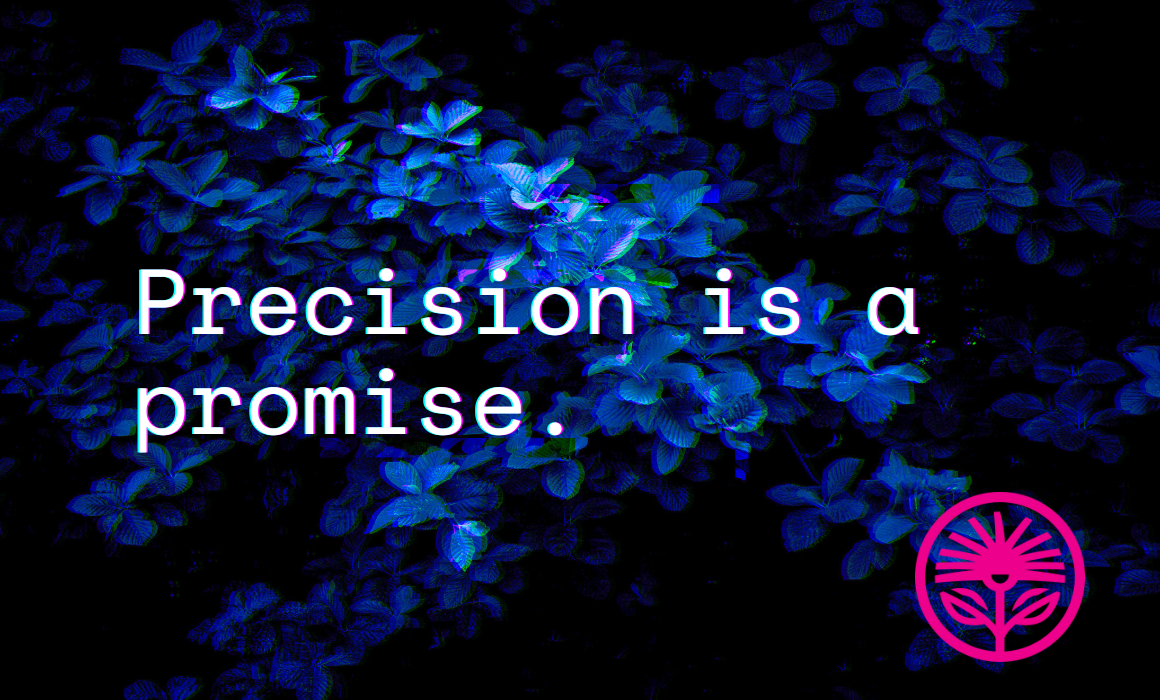Precision is a promise — Kelford Labs Weekly
Don’t summarize, specify.

“When you write well about the particular, you write well about the general.”
— Dave Trott
One of the little tricks I tell new consultants and advisors, when asked about something that’s a little outside their area of expertise, is, “Always be specific. Never summarize.”
So, let’s say you’re a new advisor or consultant, or you’re launching a new service offering, and a prospect asks you about your experience in their field.
If you’re still building a track record in that industry, you might be tempted to generalize. To vaguely summarize your experience in a way that makes it sound more applicable than it is. You’re being honest, but by being a bit abstract, you’re hoping they get the gist of your abilities by speaking in generalities.
But that backfires, because summaries are suspicious.
I mean, think about it. If you asked a child what they were doing in another room, and all you heard was banging and crashing, and they said, “Oh, this and that, don’t worry about it,” you would instantly become more worried and more suspicious.
But if they said, “I accidentally knocked over the lamp while I was playing, but luckily it’s fine,” you might actually believe them. You might even trust them more than you did a moment ago.
It turns out when we’re skeptical about something, summarization is taken as suspect. Because it doesn’t admit of criteria for validation. It sidesteps the verification process and banks on trust alone.
Which just makes us think, “What are you hiding? And why?”
But precision is a promise.
Because precise statements are verifiable and falsifiable, they feel more reliable.
So here’s what to do if someone asks you about something you don’t have a long-term track record with:
You say that.
You say, “Actually, that’s an area where we’re still growing. But here’s exactly what we’ve done in that area so far...” and then you itemize your specific, even if it’s slight, experience in that specialty.
When you generalize, what you’re saying is, “Don’t worry.” And what they hear is, “I’m avoiding the question.”
But if you’re specific, what you’re saying is, “Verify my claims.” And what they hear is, “I’ll always be honest with you.”
This works in sales conversations and website copy and social media posts. It generalizes quite well. Why? Because it’s specific. Because it’s obviously applicable to one clear situation, which means it’s applicable in many situations.
Notice what I did here? I started off with a specific example of a specific problem and its specific solution. But now you’re seeing how generally applicable it really is. You’re noticing how it works in many situations, because you can clearly see how it works in one.
Anyone can summarize or generalize (heck, that’s one thing AI is better at than most people).
But it takes real thought, real humanity, and real humility to be specific.
So if you’re launching something new or starting from scratch, keep that in mind:
Summaries are suspicious.
But precision is a promise.
Reply to this email to tell me what you think, or ask any questions!
Kelford Inc. shows communicators the way to always knowing what to say.



